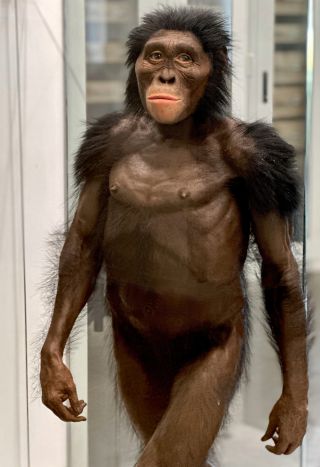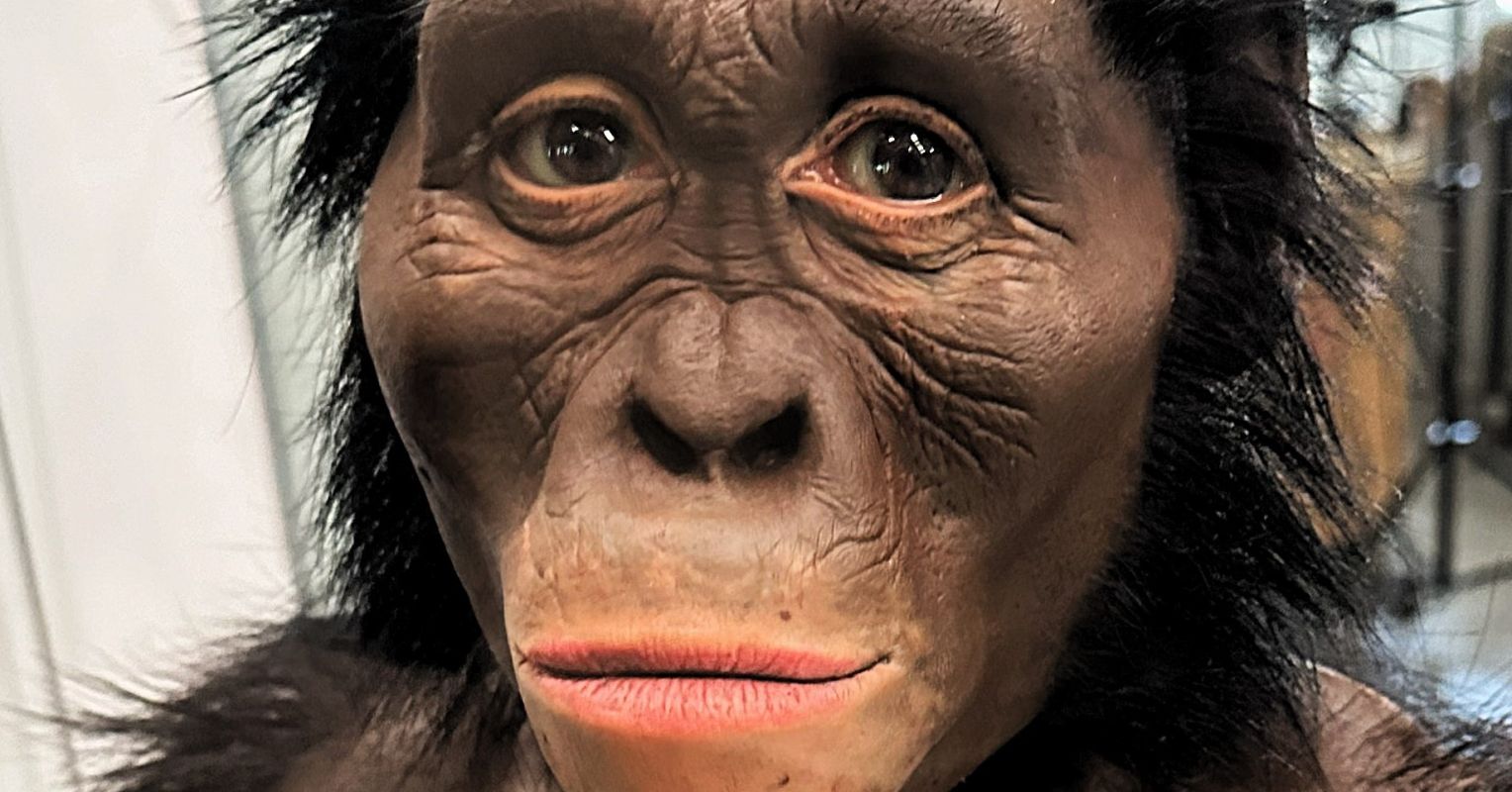The Primate Perspective helps us recognize that we are deeply connected to the natural history of this planet as well as countless forms of life around us, on us, and inside of us right now.
Source: Guy P. Harrison
Many astronauts and cosmonauts have described the Cosmic Perspective as a life-changing upgrade for the modern human mind. Seeing the borderless blue-green Earth from space reveals it to be the lonely home we all share within a dark and endless ocean. The Cosmic Perspective works because in space no one can hear us scream about nationalism, sexism, racism, religious fanaticism, and all the other micro-manias that prevent peace and hinder progress. Unfortunately, very few people get the chance to look through the window of a spacecraft. But there is another perspective we all can experience and benefit from, no rocket required.
The Primate Perspective is an evidence-based view of who and what we are down here on the ground. The Primate Perspective reveals us as bipedal endothermic multicellular organisms with hands and big-fat brains. We are one kind of animal among many. Every human is a eukaryote, vertebrate, mammal, primate, and ape. This is crucial Self-awareness that can bring us closer to reality and enhance our long-term survival prospects.
For us, waking up and growing up begins by facing the reflection in the mirror and recognizing that we are life within life, children of ancient seas, one obnoxious neuron-bloated being within the Primate Order. There is no scientific evidence for Homo sapiens having a magical origin or being guided by supernatural forces. Beneath the layers of invented culture, we are natural entities, accomplished but troubled apes struggling to figure ourselves out.

Accepting our evidence-based origin story and the reality of our place in nature can make us a more rational species and enhance our long-term survival prospects. (Photo of Lucy reproduction at the Institute of Human Origins)
Source: Guy P. Harrison
Lifeforms like us are what can happen when the indifferent and unintelligent processes of evolution play about with molecules for a few billion years. The Primate Perspective requires us to accept that we are not angels perched at the center of the universe. We are not apart from nature nor are we somehow better than nature. Humankind is a life form among trillions, one snapshot in a vast organic blur. We are eukaryotes with delusions of grandeur, can-do cells who thought their way all the way to the Moon. This is a gang of eight billion atomic patterns in flux, all loaded with the gifts and burdens of consciousness. We are the neurotic apes who sing, sculpt, lie, do math, run marathons, and laugh. Humankind is the most unusual consequence of the Cambrian by far.
The Primate Perspective means accepting the most intimate realities. You and I are animated matter with electrified thoughts, bipedal lumps of mostly oxygen/carbon/hydrogen/nitrogen, hairy gene vehicles on the road to… wherever we end up. A direct line of connective tissue runs through us all the way back to Homo erectus, Australopithecines, sea sponges, single-celled ocean creatures, viruses, etc. These are technical truths based on the most reasonable conclusions drawn from a convergence of evidence. There is no reason to fear the Primate Perspective. None of this has to be interpreted as insult or slander. I view it as exciting and inspirational. I’ve long suspected that the 98.7 percent of identical genes I share with bonobos are the best part of me.
Our brains are impressive but not fundamentally different from a modern chimpanzee’s. For all our brilliance, modern humans are prone to so much idiocy today in large part because we don’t acknowledge our evolved cognitive biases and surprising ape ways of perceiving the world around us. Most people have little understanding of how primate brains work, despite having one and depending on it for everything.
Modern minds struggle to instinctually or automatically recognize false advertisements, crazy YouTube videos, and corrupt politicians. We stumble over meaningless coincidences, fixate on random patterns, and invent a purpose behind them. The kind of critical thinking we need more of requires deliberate attention and effort from us because civilization is a relatively new environment. Our primate brains are behind the times and won’t catch up through evolution anytime soon. However, learning about and consciously adjusting for our more troublesome instincts and vulnerabilities can significantly enhance our capacity for reason, productive imagination, and sensible behavior.
The Primate Perspective helps us understand how deeply connected we are to the natural history of this planet as well as countless forms of life around us, on us, and inside of us right now. Nature is not a thing to visit. Nature is everything, and everything includes us. Concrete, plastic, and touchscreens are not the barrier or insulation many imagine. Accepting that we come from and are dependent on nonhuman life is a vital perceptual adjustment. Religions and political philosophies that encourage adherents to believe they are superior and separate from nature are not only wrong but detrimental to our survival. Ecocide is suicide.

One glance at Lucy’s cranium inspires small questions with giant answers: Who was she? Who are we?
Source: Guy P. Harrison
We are members of the Primate Order, descendants of the extinct Aegyptopithecus and Australopithecines, close kin to modern tarsiers, lemurs, monkeys, and nonhuman apes. Learning and internalizing this can provide some needed humility and help us understand that extinction is always stalking us. We are not safe from the fate most species on Earth have experienced. A big super-convoluted brain seems like the ultimate superpower but could be the road to ruin if we use ours to spoil the biosphere or invent our way to a high-tech final war. The worst can happen because nature doesn’t care.
One of our most recent non-human ancestors was an Australopithecus afarensis nicknamed Lucy. Donald Johanson discovered her 50 years ago in Ethiopia and she has been helping us imagine and appreciate our past ever since. The Lucy fossils show us how those who once lived just outside the edge of the human genus looked and likely lived. One glance at her cranium spurs us to ask small questions with giant answers: Who was she? Who are we? Where did we both come from? Will we one day become extinct, another silent shadow of the past like her?
The Primate Perspective can nudge us toward sanity and sustainability. We continue to accumulate dangerous technologies. We disregard our dependence on natural systems. And we tear ourselves apart over trivial and imagined differences. It is difficult to see how the future can go well for us if we do not become more rational soon. We are smart, no doubt, but are we wise enough to survive beyond this century and this millennium?













